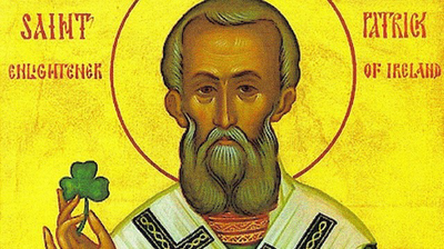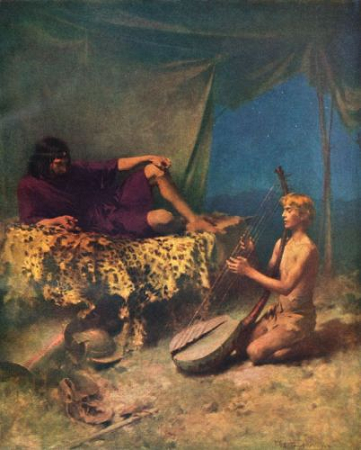
"After chastisement from God, and recognizing him, our way to repay him is to exalt him and confess his wonders before every nation under heaven."
ST Patrick, Confesio, Fifth Century.
"...it's worth pondering for a moment why we celebrate St. Patrick's Day far more than, say, St. Augustine's Day or St. Athanasius's Day, even though those two men probably had more influence in shaping Christianity across the world. Put simply, it's because Patrick didn't shape Christianity across the world—at least directly. (Though one can argue that his work in shaping Irish Christianity later bore fruit that would affect the faith through the ages.) He's a large but local figure. And, to over-simplify a bit, it was mostly Irish Americans rather than Irish Irish who made the day a festival of national pride."
ST Patrick Fought Human Trafficking
""It would take too long to … sift through the whole of the Law for precise witness against such greed," Patrick wrote in Letter to the Soldiers of Coroticus. "Sufficient to say, greed is a deadly deed. You shall not covet your neighbor's goods. You shall not murder. A homicide may not stand beside Christ. Even 'He who bates his brother is to be labeled murderer.' Or, 'He who does not love his brother dwells in death.' therefore how much more guilty is he, who has stained his own hands in the blood of the sons of God, those very children whom only just now he has won for himself in this distant land by means of our feeble encouragement. … Roman Christians in Gaul behave quite differently: it is their custom to send holy, capable men to the Franks and other nations with several thousand soldiers so as to redeem Christian prisoners, yet YOU would rather kill or sell them on to a far-off tribe who know nothing of the true God. You might as well consign Christ's own members to a whorehouse. What kind of hope can you have left in God?'"
ST Patrick was an Evangelist
"Patrick may have been upset that the raiders took freeborn Irish as slaves. But he was truly upset that they took new converts to Christianity. "The very same people I have begotten for God; their number beyond count, I myself confirmed them in Christ," he wrote, "'Ravenous wolves' have gulped down the Lord's own flock, which was flourishing in Ireland and tended with utmost care. Now I have lost count how many sons and daughters of the kings of the Scotti have become monks and virgins of Christ.'"
ST Patrick Sought an Incarnational Ministry
"Patrick's work in Ireland was more incarnational—taking on the identity of his flock and laying aside his former identity and rights. As he wrote in the Letter, "For by descent I was a freeman, born of a decurion father; yet I have sold this nobility of mine, I am not ashamed, nor do I regret that it might have meant some advantage to others. In short, I am a slave in Christ to this faraway people for the indescribable glory of 'everlasting life which is in Jesus Christ our Lord.''"
ST Patrick Sought a Christian Education for the Irish
"'How is it that in Ireland, where they never had any knowledge of God but, always, until now, cherished idols and unclean things, they are lately become a people of the Lord, and are called children of God; the sons of the Scotti and the daughters of the chieftains are to be seen as monks and virgins of Christ," he wrote in the Confesio, then goes on to tell of a "a most beautiful, blessed, native-born noble" convert who fought against her parents to become a virgin of Christ."
ST Patrick Submitted to the Authorities and Rebelled against Them
"The debate over how distinct "Celtic" Christianity was from the "Roman" Christianity of its time is ancient, and descriptions of how much a maverick Patrick was depends largely on conjecture. Was Patrick submitting to authority by sending his Confesio in response to accusations that he was unfit to lead (the specifics of which are lost to history)? Or was he recalcitrant or independent in merely sending a written response and not responding in person to what seems to be a summons? Does his letter to the soldiers of Coroticus indicate that he had good relationships with church leaders in Great Britain, or is it an indication that he thought they were being derelict in their church discipline? The evidence can be read either way."
Reclaiming ST Patrick's Day, Ted Olsen, Christianity Today

 RSS Feed
RSS Feed